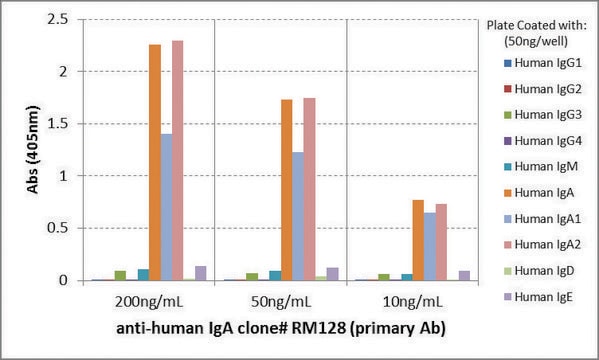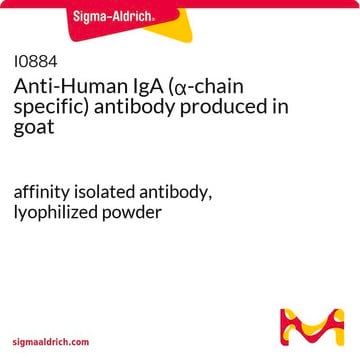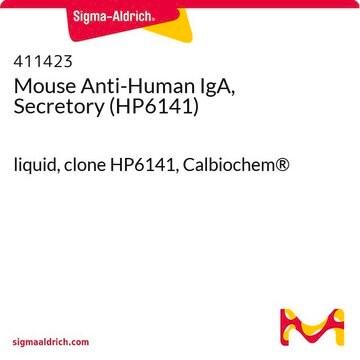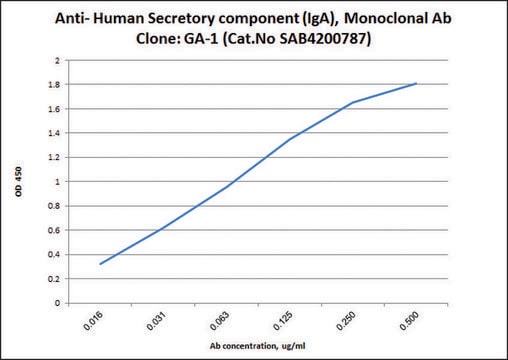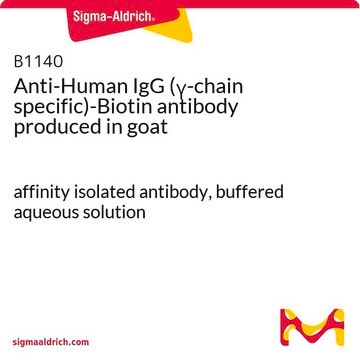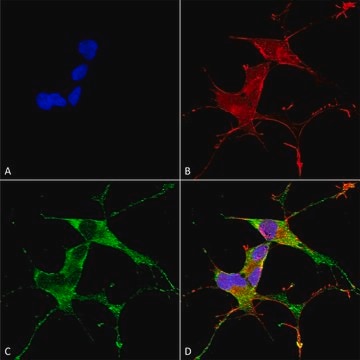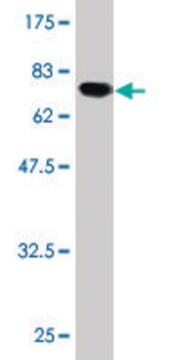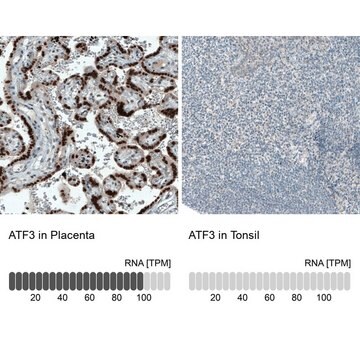SAB3701227
Anti-Human IgA (α-chain specific), F(ab′)2 fragment-Biotin antibody produced in goat
affinity isolated antibody, lyophilized powder
About This Item
Recommended Products
biological source
goat
Quality Level
conjugate
biotin conjugate
antibody form
affinity isolated antibody
antibody product type
secondary antibodies
clone
polyclonal
form
lyophilized powder
species reactivity
human
technique(s)
ELISA: suitable
flow cytometry: suitable
immunofluorescence: suitable
immunohistochemistry: suitable
western blot: suitable
shipped in
wet ice
1 of 4
This Item | SAB5201212 | SAB1403583 | AMAB90909 |
|---|---|---|---|
| conjugate unconjugated | conjugate unconjugated | conjugate unconjugated | conjugate unconjugated |
| biological source mouse | biological source mouse | biological source mouse | biological source mouse |
| Gene Information human ... ATF4(468) | Gene Information human ... ATF4(468) | Gene Information human ... ATF4(468) | Gene Information human ... ATF3(467) |
| clone 2B3, monoclonal | clone S360A-24, monoclonal | clone 2E3, monoclonal | clone CL1685, monoclonal |
| species reactivity human | species reactivity human, rat | species reactivity human | species reactivity human |
Specificity
Immunogen
Physical properties
Physical form
Reconstitution
Disclaimer
Not finding the right product?
Try our Product Selector Tool.
Signal Word
Warning
Hazard Statements
Precautionary Statements
Hazard Classifications
Acute Tox. 4 Dermal - Acute Tox. 4 Oral - Aquatic Chronic 3
Storage Class Code
11 - Combustible Solids
WGK
WGK 3
Flash Point(F)
Not applicable
Flash Point(C)
Not applicable
Certificates of Analysis (COA)
Search for Certificates of Analysis (COA) by entering the products Lot/Batch Number. Lot and Batch Numbers can be found on a product’s label following the words ‘Lot’ or ‘Batch’.
Need A Sample COA?
This is a sample Certificate of Analysis (COA) and may not represent a recently manufactured lot of this specific product.
Already Own This Product?
Find documentation for the products that you have recently purchased in the Document Library.
Our team of scientists has experience in all areas of research including Life Science, Material Science, Chemical Synthesis, Chromatography, Analytical and many others.
Contact Technical Service